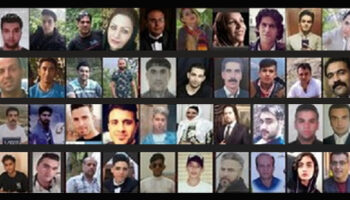SUN SENTINEL | Mohammad Reza Alizadeh | FEB 8, 2021
Iranian ex-pats in Florida closely followed a trial in Belgium, which concluded on Feb. 4 in a guilty verdict and 20-year sentence for Assadollah Assadi, the first Iranian diplomat to face terrorism charges in Europe. You wonder how a court ruling in Europe could affect our lives here in South Florida? Dozens of us, including my family and me, attended the event two years ago that he had targeted.
In November, the trial began in Antwerp for the four individuals, including Assadi, who had plotted to set off explosives at a gathering of Iranian dissidents outside Paris in 2018. Assadi was serving as a diplomat at the time, the third counselor at the Iranian embassy in Vienna, when he hand-delivered a bomb to two other terrorists on their way to Paris for the annual “Free Iran” rally organized by the National Council of Resistance of Iran. The primary target was NCRI President Maryam Rajavi, but the victims would have almost certainly included some of the hundreds of American, European and Middle Eastern dignitaries seated near her.
The details of the plot, and the magnitude of the explosive device, have repeatedly made us visualize just how terrible it might have been.
For decades, the Iranian regime has been haunted by the specter of popular revolt. In late December 2017, protests against worsening economic conditions spread from Mashhad to other Iranian cities. By mid-January 2018, that uprising had come to encompass well over 100 cities and towns, and its message had expanded beyond economic grievances to explicit demands for regime change.
The 2018 uprising sparked a broader push for change, which in turn set the stage for an even larger nationwide uprising in November 2019, upending nearly 200 cities and towns. One of the most noteworthy aspects about the uprising was the fact that it came precisely when tensions between Iran and the United States led many Western commentators to speculate that the Iranian people would start to line up behind their government and blame sanctions for their hardships. But that did not happen.
That is why, if you ask Iranian Americans, you will find that many of us support a long-term strategy more or less in line with the “maximum pressure” of the former administration. We understand American politics well enough to recognize that President Joe Biden will not continue wielding unilateral economic sanctions as the sort of blunt instrument that his predecessor preferred. But we also understand that there are other ways of meaningfully exerting pressure — some of which are being tested in Europe right now.
The Iranian people would embrace Western pressure if that pressure was offered alongside explicit signals of support for their democratic aspirations. “No country should arrest, torture, or execute peaceful protesters or activists,” President Biden tweeted in September 2020. “Iran must free its other political prisoners … and release unjustly detained Americans.”
This year presents the Biden administration with an opportunity to condemn the Iranian regime’s terrorism, commend the Belgian court for its determined investigation, and prove the ayatollahs wrong. Biden can show that, when it comes to counter-terrorism and human rights, America is nonpartisan, resolute and stands on the side of the Iranian people.
Mohammad Reza Alizadeh, a Boca Raton resident, is the political director of the Iranian American Community of South Florida.




